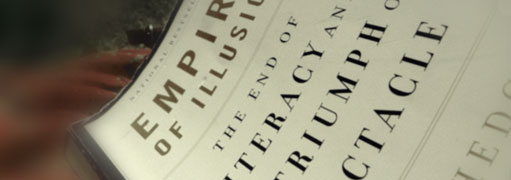Book Review: Chris Hedges’ Empire Of Illusion: The End Of Literacy And The Triumph Of Spectacle
Chris Hedges’ Empire Of Illusion Occupies The Mind



Latest Article|September 3, 2020|Free
::Making Grown Men Cry Since 1992





